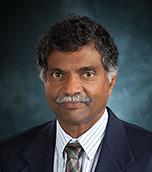event
Robust Modes in Hydrodynamic Flows
Primary tabs
School of Physics, Nonlinear Science & Mathematical Physics Seminar: Prof. Gemunu Gunaratne, University of Houston
Analytical and computational studies of hydrodynamic and reacting flows are extremely challenging, due in part to nonlinearities of the underlying system of equations and long-range coupling. Moreover, accurate models of many of these systems in realistic settings are not available. Recent developments in high-resolution, high frequency experimental data capture offer an alternative approach to extracting key features of the underlying systems. However, this approach elicits additional issues, including how noise and other external effects can be delineated from dynamics.
In this talk, I will introduce Koopman mode analysis, a nonlinear generalization of normal mode analysis, and dynamic mode decomposition, a computational method to extract Koopman modes from spatio-temporal data. Koopman modes are global structures, each of which evolve with a single complex growth rate. Studying the dynamics of the coefficients of Koopman modes permits a decomposition of a flow into its constituents. The delineation of noise from dynamics is recast as a differentiation of robust flow constituents (i.e., those common to nominally identical experiments) from non-robust features. The methodology is used to identify reproducible flow constituents in (1) cellular patterns on flame fronts, (2) instabilities in reacting flows behind a barrier, (3) injector flows, and (4) swirling combustion.
Groups
Status
- Workflow Status:Published
- Created By:Shaun Ashley
- Created:01/10/2018
- Modified By:Shaun Ashley
- Modified:01/12/2018
Categories
Keywords
Target Audience

